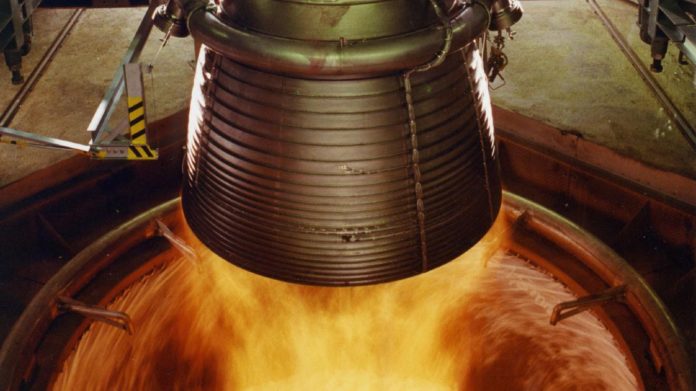European experts have successfully completed qualification fire tests of the first-stage engine of the future European heavy rocket Ariane 6, the first launch of which is planned for 2020. According to the European Space Agency, the success of engine tests opens the way to combined tests, during which the entire first stage assembly will be tested.
The Ariane 6 rocket is designed to replace the European heavy-class rocket Ariane 5. Ariane 6 will inherit the general design concept from the previous version and will have similar characteristics, but at the same time it will become noticeably cheaper both in production and in the final launch cost. Ariane 6 will consist of two central stages with liquid engines Vulcan and Vinci, as well as solid fuel side boosters P120C, whose engines have already been tested. Depending on the version, two or four accelerators will be used in the rocket. The payload that the rocket can put into orbit will vary from 4 to 16 tons.
The first stage engine – Vulcain 2.1 – was developed based on the Vulcain engine, which was installed on the Ariane 5, and, like it, uses a pair of liquid hydrogen / liquid oxygen as fuel. Engine thrust – 135 tons. At launch, he will have to work the first eight minutes and, together with the accelerators, ensure the launch of the rocket to a height of 200 kilometers.
Vulcain 2.1 has undergone static fire tests at the DLR training ground in German Lampoldshausen over the past 15 months. During the final tests, the engine ran continuously for 655 seconds – almost 11 minutes. Now this engine after the bulkhead will undergo vibration tests.
A successful engine test opens the door to combined tests, during which the entire first stage assembly will be tested – these tests will be conducted at the European space center in French Guiana.
The Vinci engine of the second stage was tested in October 2018, the tests of the second stage assembly will be held in Lampoldshausen. In addition, in French Guiana, qualification tests of solid-fuel accelerators P120C are to be carried out. These tests will open the way for the first launch of a new rocket.
Via | ESA
